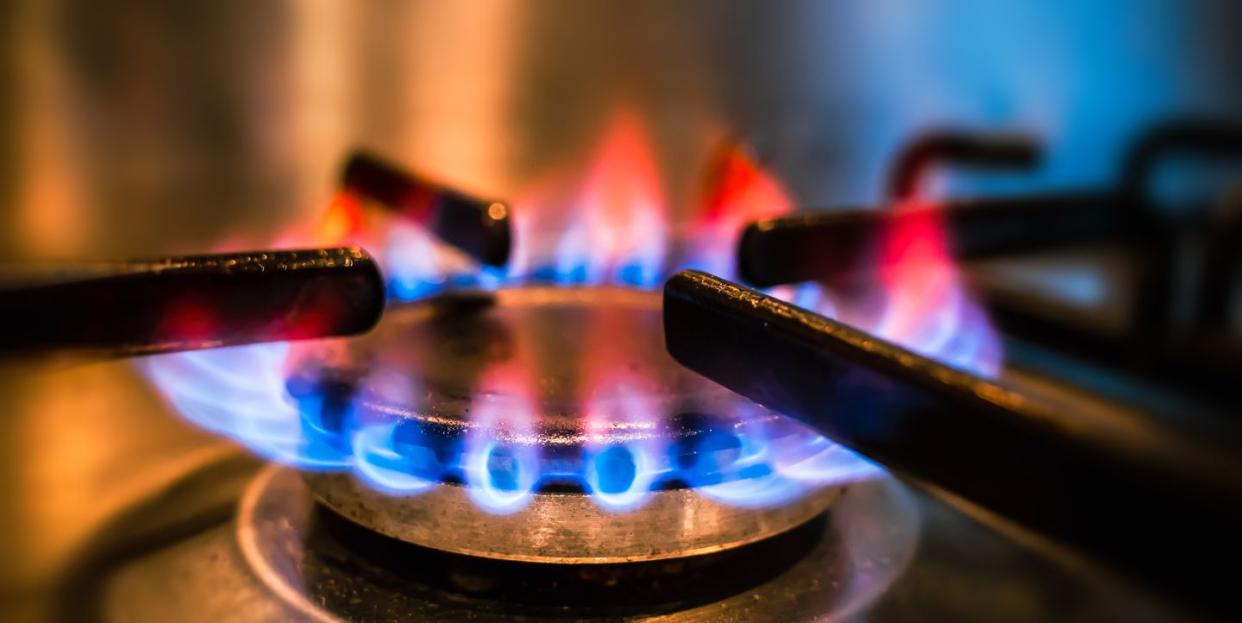The Unexpected Dangers Of Using A Gas Stove

Gas stoves have become a hot topic recently. The state of New York enacted legislation earlier this year banning the use of gas stoves in new buildings. And in response to mounting, yet unfounded, fears about a nationwide ban, the House passed a bill this week to block any federal action on the matter.
The idea of losing the appliance evokes strong feelings. “I can tell you the last thing that would ever leave my house is the gas stove that we cook on,” West Virginia Senator Joe Manchin declared in February. And the electric coil stoves that run rampant in rentals are consistently (and understandably) vilified as an inferior option.
But that also doesn’t dismiss the rising environmental and health concerns around natural gas-powered stoves. Studies have found that gas stoves can leak cancer-causing benzene gas and emit 2.6 million tons of methane into the atmosphere—whether they’re running or not.
The conflicting discourse can be especially confusing for the average person. And since one third of Americans rely on them to cook their meals, the questions have become especially pressing. Are we putting ourselves in danger by using gas stoves? Is the government planning to phase them out? And worst of all: will we have to switch to those dreaded electric coils? *shudder*
We're here to answer all of the lingering questions about these appliances and their potential risks.
What Are The Health Risks?
Are gas stoves unsafe? According to Dr. Paul Wennberg, a professor at the California Institute of Technology, they do come with inherent risks. Burning natural gas causes emissions of certain byproducts including formaldehyde, nitrogen dioxide, and methane. Nitrogen dioxide, in particular
, presents some major health risks.
Exposure to NO2 can irritate your mucus membranes (your eyes, nose, and throat). But at high levels, it can cause serious issues with your lungs—children and those with asthma are especially at risk.
With gas stoves, it doesn't take much to create an unhealthy environment. The EPA estimates that most houses with gas stoves surpass outdoor NO2 levels. A Stanford University study even found that some gas stoves created a NO2 concentration above what the EPA considers an unhealthy level within just a few minutes.
"In a laboratory or even in a commercial building, typically the air is exchanged about every 15 minutes; every 15 minutes, most of the air in a room has been exchanged with outdoor air that's been brought into the building by fans," Wennberg said in an article for Caltech Science Exchange. "At home, generally, the ventilation is much worse."
Using a gas stove and optimizing kitchen ventilation should go hand-in-hand. The best method is a range hood that vents particles outside. But if you live in an older home or a rental, that might not be possible.
"Some stoves in apartments and homes don't have ventilators, and for those that do have ventilation above them, many of these hoods don't work particularly well," Wennberg said. "They can trap oil, but many just blow the air right back into the kitchen."
If your ventilation options are less than ideal, there are ways to improve the filtration of these particles. You should open your windows at the very least; investing in an air purifier can help to some degree.
While the spotlight has been on gas stoves in recent months, it's also important to consider that they aren't the only contributor of NO2 in your home. Smoking indoors and even lighting candles can introduce more of the particles into the atmosphere. So you should be ventilating your home throughout the day—not just when you're cooking.
"The evidence is strong that we need better indoor air quality," said Wennberg. "But if you clean up your gas stove and you're still enjoying candles every night, you've missed the message."
What About My Gas Grill?
Just like the stoves inside your house, grills burn gas and create atmospheric byproducts that could cause health issues at high levels. But, thankfully, grilling outdoors minimizes many of the health risks associated with gas-powered cooking mechanisms. Cooking in the open air disperses the byproducts of natural gas combustion. So if you needed another excuse to host a backyard barbecue, this is it.
What’s Going To Happen To Our Gas Stoves?
Lawmakers passed the Gas Stove Protection and Freedom Act, H.R. 1615 (118) in the House this week, which bars the Consumer Product Safety Commission from banning gas stoves. But the independent agency had no plans to do so in the first place.
Instead, the CPSC initiated an inquiry to learn more about the health risks posed by the appliances. “To be clear, I am not looking to ban gas stoves and the CPSC has no proceeding to do so,” says the commission’s chair, Alexander Hoehn-Saric.
As a double whammy, the House also passed the Save Our Gas Stoves Act, H.R. 1640 (118) this week. This bill would prevent the Department of Energy from enacting its proposed energy efficiency requirements for cooking appliances.
Proponents of the proposed regulations argue that these newly passed bills misrepresent the DOE’s plans—which would only impact the sale of new gas stoves three years after the rules would be enacted.
“No one is saying you can't keep your gas stove. No one is saying you don't have a choice. No one is saying you have to move to electric stoves. This is all misinformation,” says Congressman Frank Pallone, ranking member of the House Committee on Energy and Commerce.
So, to dispel any rumors: no, you’re not losing your gas stove. Whether these bills become law or not, the government will not be removing gas stoves from your homes or from the market altogether.
You Might Also Like
